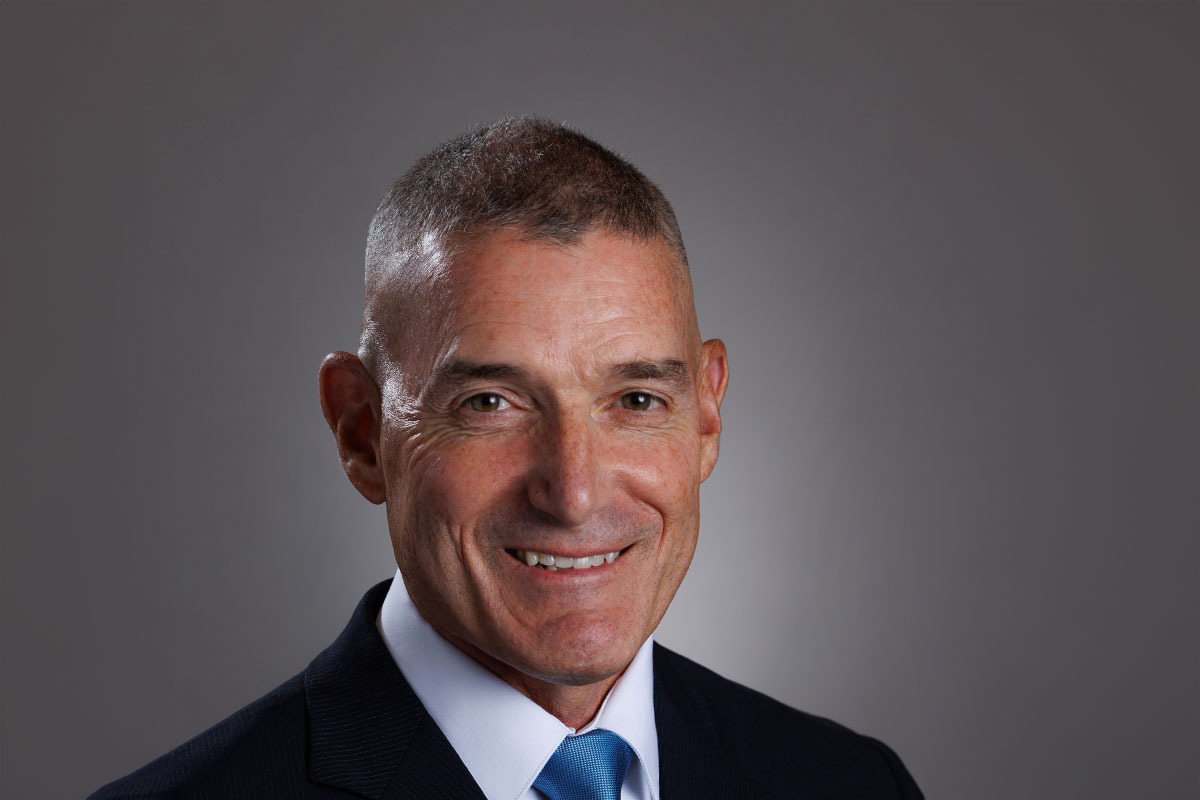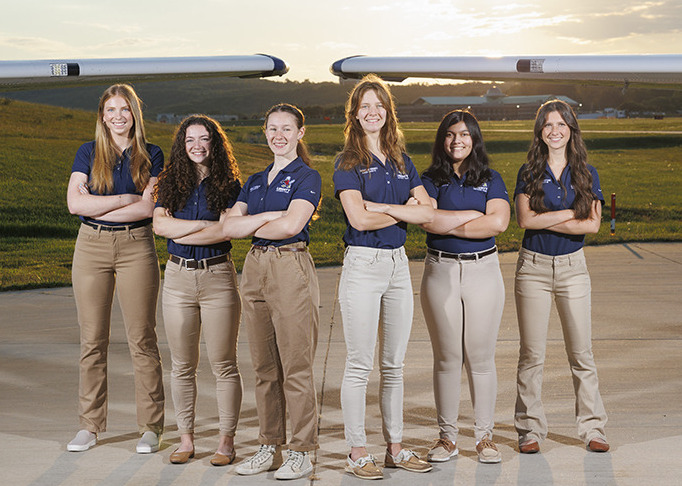Search News Archives
Filter News Articles
Additional Navigation
Liberty Law hosts ‘pillars of the pro-life movement’ for panel discussion on abortion in a post-Roe America
February 14, 2023 : By Jacob Couch - Office of Communications & Public Engagement
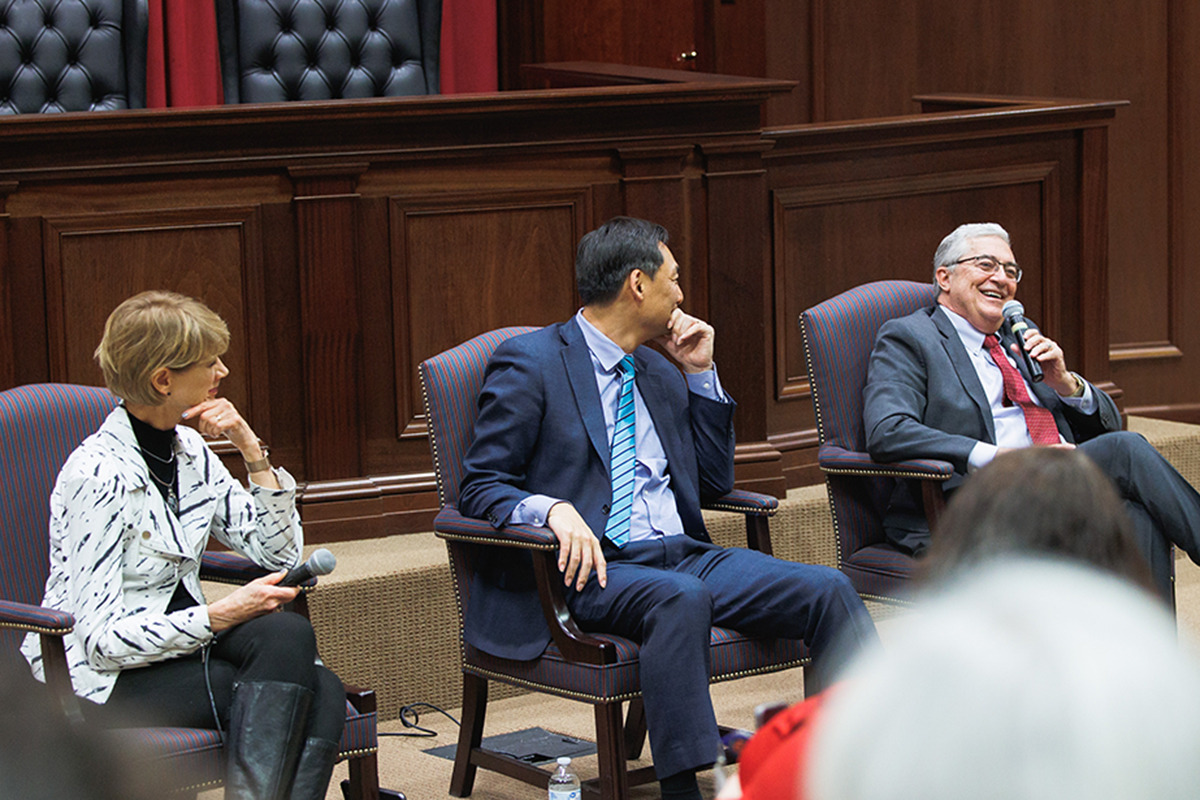
Liberty University School of Law recently held a panel on “Rethinking Abortion: Life after Dobbs,” featuring experts Allan Parker, president of The Justice Foundation and lead counsel for Norma McCorvey, formerly “Roe” of Roe v. Wade (2000-2012) and Sandra Cano, the “Doe” of Doe v. Bolton; and Dr. Paige Cunningham, Executive Director Emeritus of The Center for Bioethics & Human Dignity.
Liberty Law Dean Morse Tan, a former Ambassador at Large for the U.S. State Department’s Global Criminal Justice, facilitated the Feb. 9 discussion on the recent efforts to overturn the two landmark cases and their legal progeny that brought legalized abortion on demand to America. Other panel topics included abolishing in vitro fertilization, viewing abortion as a crime against humanity, and educating people on the alternatives to abortion.
“I am not exaggerating at all when I say these are two major pillars of the pro-life movement,” Tan said as he introduced Cunningham and Parker, noting that the recent progress of the pro-life movement has been due to their efforts to extinguish the evils of abortion.
“We are prepared to go wherever the Lord leads,” Cunningham said, explaining that she and Parker have both arrived at their well-respected positions in the pro-life community due to their commitment to following God. “I just want to encourage all of you who are thinking, ‘That’s impossible (to end up where Cunningham and Parker are at in life).’ If God leads you, He gives you what you need, and He surrounds you with people that fill in all of the gaps.”
Parker echoed his colleague’s sentiments while tracing the recent pro-life victories in America to their source.
“One of the ways we got to where we are is through millions of prayers and growing a mass movement to change society,” he said. “Nobody can do it alone, and God did it.”
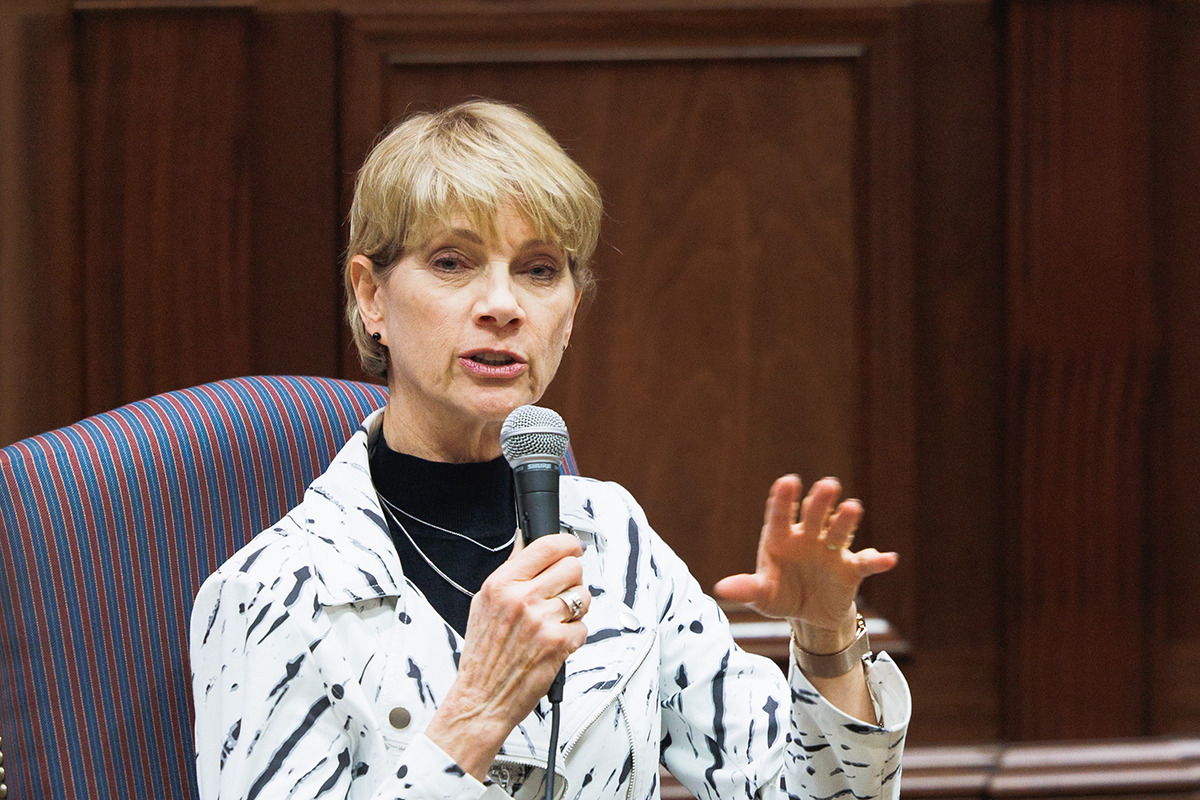
With the advancements of the pro-life movement in the past year, Parker took on the question of how to advance that victory by abolishing in vitro fertilization to protect frozen eggs that have already been fertilized, which he explained is an expansion of the idea that life begins at conception.
“I think we need more scholarly research and more public education (on this topic) before the Supreme Court is willing to accept the argument that the right to life under the constitution protects life from the moment of conception,” he said.
“It takes time to change culture,” he added. “But we need to do the historical research, get the education about it to where the judges, based on the appropriate case with the appropriate evidence, will be comfortable making that judicial determination.”
Cunningham then talked about how Christian young people can go about conversing with pro-choice advocates in effective ways, standing firm biblically while altering some traditional pro-life language to allow walls of hostility to come down.
“I think in terms of language, the pro-life label is kind of a pejorative term that has lost its strength. We may not want to give up on it because it is true. But we may want to highlight or foreground some other ways of talking about abortion and all the other assaults against vulnerable human beings.”
The panel then discussed how abortion is, in some opinions, a crime against humanity and should be viewed through a similar lens as the tragedy that slavery and segregation were in the U.S.
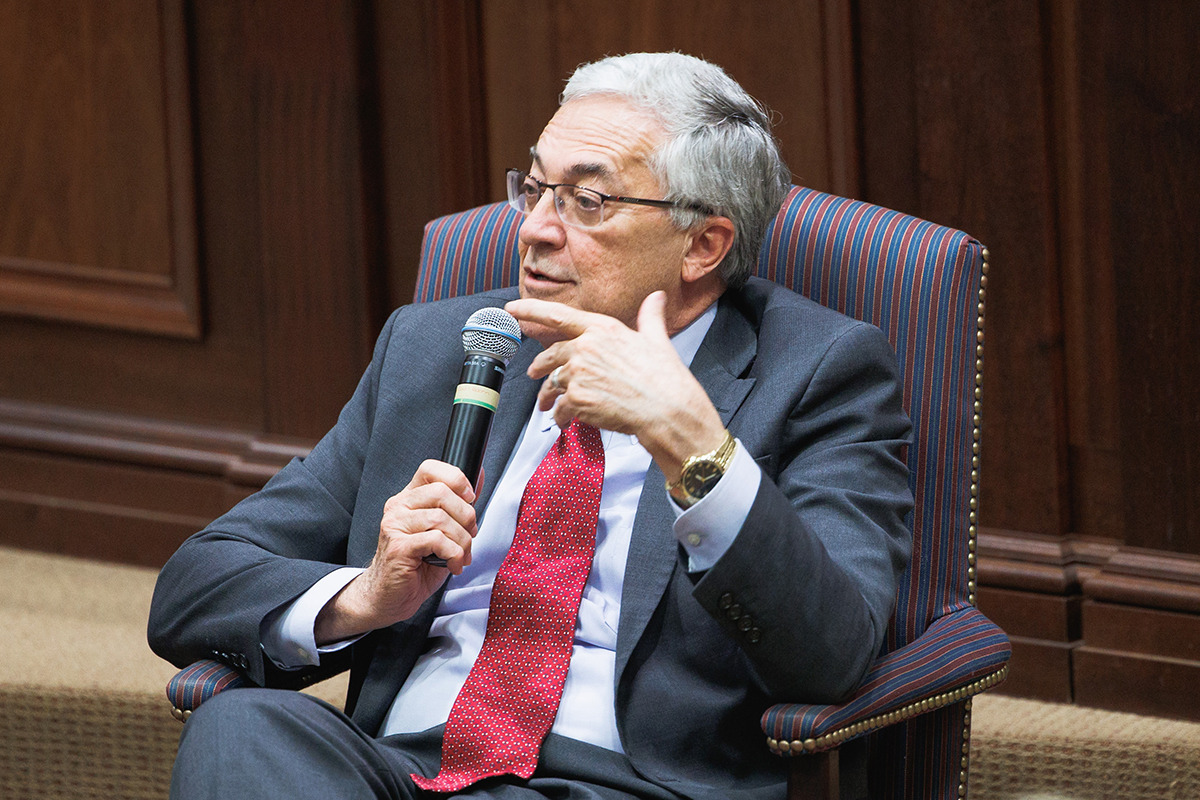
“We don’t have any exceptions for slavery or segregation; we just eliminated it,” Parker said, comparing this time in history to the time when segregation was about to abolished. “We’re in the de-apportioning phase of America.”
Parker encourages pro-life advocates to not use “separation language” when speaking about a baby in the womb.
“I always tell the pro-life movement we should not talk about an ‘unborn child’ or a ‘preborn child’ (because) that’s separation language. It is an infant life, and the Supreme Court (Casey) has said it is.”
The panel then transitioned to educating the audience on the racist founding of Planned Parenthood, a fact they said is seldom mentioned in America.
“The group that wants to reduce the number of black babies in America is Planned Parenthood,” Parker said. “Some of them may be deceived into thinking that they’re doing a good thing, but I think they’re the most effective, racist organization.”
“When you are talking about Margaret Sanger and others in the history of Planned Parenthood, this was their racist final solution against minorities was to abort them,” Tan added.
Parker concluded by reminding those in attendance that although change takes time, there is great hope for extinguishing the legality of abortion.
“It took 10 years to go from segregation being the law of the land to nondiscrimination being the law of the land,” Parker said. “Things are accelerating. I may be the world’s craziest optimist, but I think it won’t take more than 10 years, maybe five to 10 years.”
